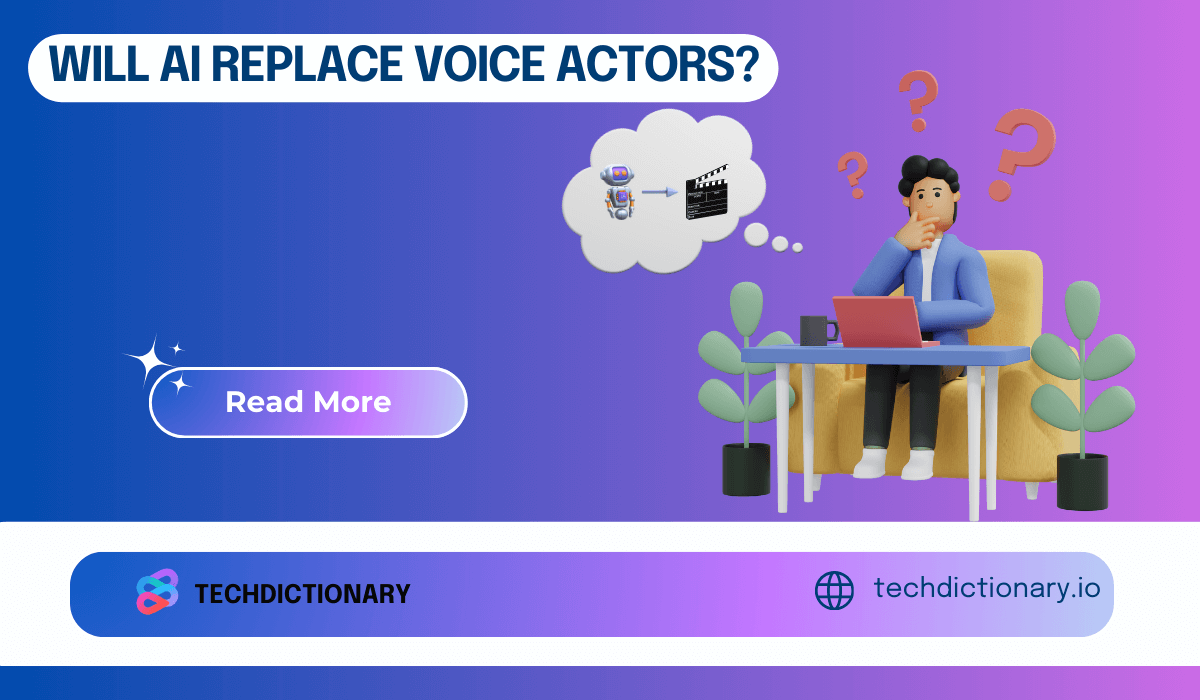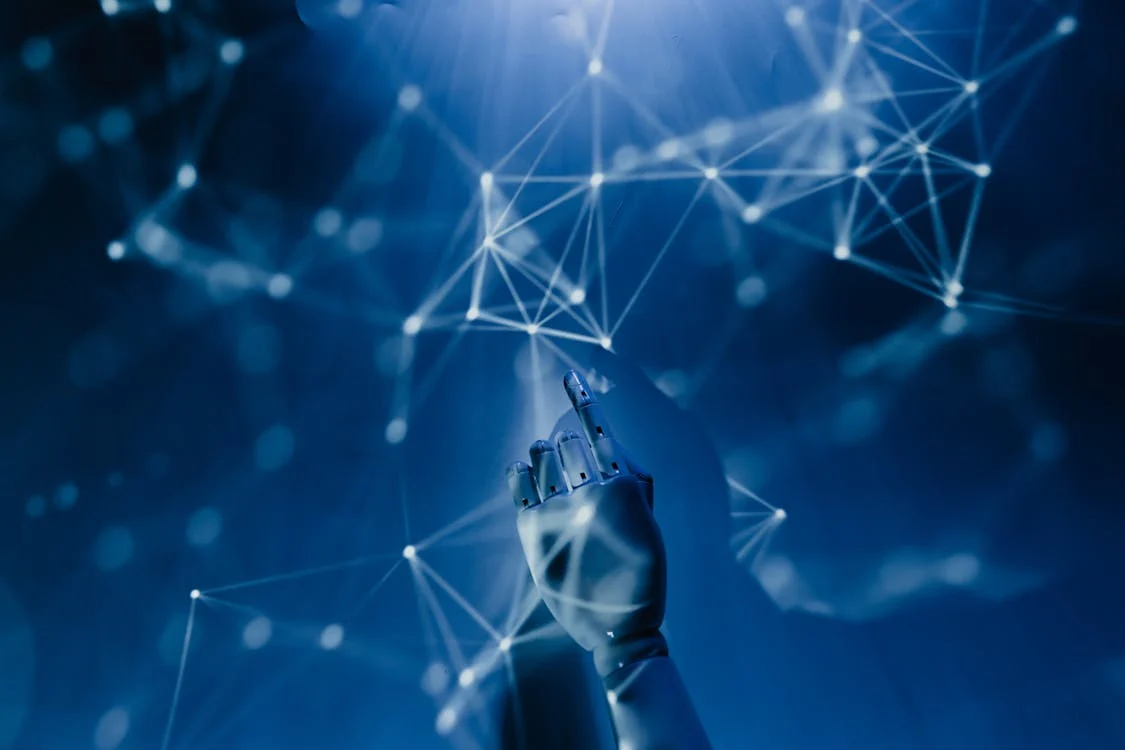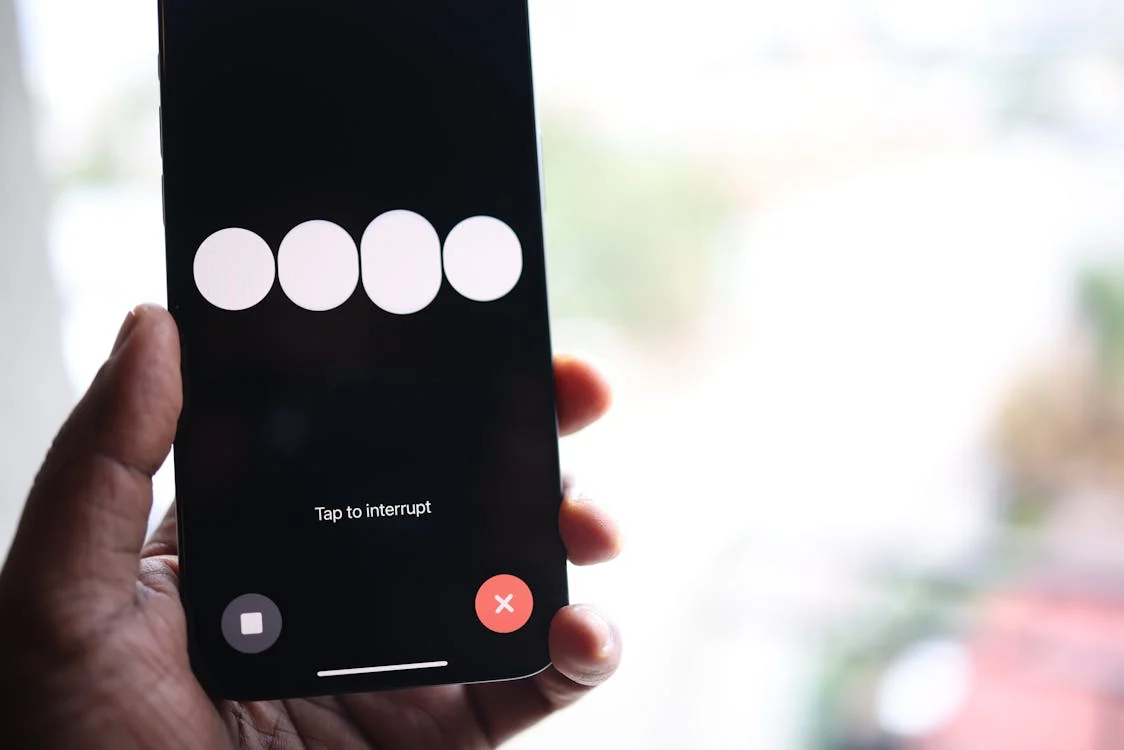
Will AI replace voice actors? No, AI can not replace voice actors anytime in the near or distant future. However, AI may change the way the voice actors industry works. While AI voice technology is advancing, it still cannot fully replicate the emotional depth, nuance, and authenticity that human voice actors bring to their performances. Stay tuned for an in-depth article that will provide updated information!
No, and it shouldn’t. AI is revolutionizing the dubbing industry in unprecedented ways. However, it’s unlikely to completely replace human voice acting. Advances in speech technology have made AI voices more realistic than ever, causing concerns among voice actors about potential replacement. Nevertheless, as generative AI continues to transform various industries, including the creative field, it is more probable that the voice-acting industry will utilize AI to improve their work rather than replace it.
AI is increasingly widespread in voice acting, and its role is better described as enhancement and streamlining. One is through text-to-speech, where AI can automatically generate synthetic voiceovers from written text. While this may impact some standardized narration work, it hugely expands creative access.
Another role is voice cloning – creating personalized synthetic voices that closely mimic real people. This technology helps streamline tasks like ADR by synthesizing replacement dialogue in post-production.
AI also has a role in tools that analyze human vocal performances and provide feedback to refine takes. This enhances voice acting by helping home delivery and emoting. AI is likewise core to how complex personalized assistants operate and respond conversationally.
A more behind-the-scenes role involves automating traditionally manual production processes. For example, AI can identify which takes in a scene need re-recording during ADR or filter/sort audio files. This speeds up workflows while freeing talent and engineers for more complicated work.
For those looking to integrate AI into their voiceover projects, selecting the right AI dubbing software is essential. Check out our list of the 7 best AI dubbing software for video localization to find the most efficient solutions for multilingual content creation.

AI is becoming increasingly significant, both as a tool to assist human voice actors and as a means of generating synthetic voices.
According to US News, individuals in the voice actor industry hold varying perspectives on the use of AI in voice acting. Join us in exploring the two main perspectives of industry professionals.
Some people think that AI can help voice actors work better. It can make them more efficient and able to do more work. For example, AI can check how well a voice actor is doing and give tips on how to improve. This can help voice actors get better at their job. In some cases, AI has been used to copy the voices of video game actors.
Some people believe that AI might replace certain entry-level voice jobs. The AI boom could also lead companies to use machines for work instead of people, which could mean fewer jobs for artists who rely on these types of work.
Thanks to advancements in text-to-speech technology and deepfake algorithms, AI-generated voices are becoming more realistic and human-like. These AI voices can be useful for applications like video games, audiobooks, and navigation apps, where speed and cost-effectiveness are priorities.
For studios, adopting AI voiceovers offers advantages like faster turnaround times and easier localization into multiple languages. AI also enables voice actors to experiment with new character voices and accents and license their vocal likenesses for new revenue streams.
However, AI lacks the emotive qualities and nuanced delivery that a skilled human voice actor can provide. Many roles still require the unpredictable dynamics that only an experienced person can offer. So, while synthesized voices have a role to play at times, voice acting as an art form and profession is unlikely to become fully automated anytime soon.

AI voices can now capture many of the subtle acoustic properties and rhythms of human speech.
To address the detailed explanation for the question: “Will AI replace voice actors?”, let’s follow our explanation in the following table:
| Criteria | AI Voice | Human Voice Actor |
| Consistency | Can be used repeatedly with no charges | May change over time with age or illness |
| Casting Options | Offers a diverse catalog of voices for any project | Limited to available voice actors |
| Cost-effectiveness | Synthetic voices are much cheaper than hiring human talent | Voiceover artists charge hundreds of dollars per hour of final audio |
| Creativity | Can not replicate the creativity that voice actors bring to each role | Draw from life experiences to improvise and adapt |
| Emotions | Challenging to replicate certain emotions like pain, sadness, or joy | Can authentically convey a wide range of emotions |
| Nuances | May struggle with cultural nuances and local sayings | Have a lived experience with unique accents and expressions |
| Spontaneity | Can not adapt to unscripted situations or improvise on the fly | Can seamlessly adapt during recording sessions |
As you can see, while AI voices offer consistency, flexibility, and cost-effectiveness, they currently fall short in areas like creativity, emotional range, nuance, and spontaneity.
However, AI is rapidly improving and can be a valuable tool for voice content creation when used strategically alongside human talent.
Human voice actors bring a unique blend of vocal skills, creativity, and emotional depth that resonates with audiences. Their ability to convey authentic emotions or bring characters to life is unmatched by current AI technology. However, the high cost and time investment required for human voiceovers may not always be feasible.
If you want to experience your own AI voice, let us show you how to get an AI voice with some simple steps.
The best approach is often a hybrid model. Some manual tasks AI can help with are modulating actors’ voices, which ultimately reduces costs, analyzing scripts, and expanding their work capacity. This opens doors for actors to take on more projects and earn passive income.
Hypothetically, famous voices could live on through respectful cloning. But protecting performers necessitates discussion. With understanding and cooperation between tech and talent, storytelling may be enriched for all. The future invites balancing progression and people, empowering continued collaboration where one inspires the other.
To sum up, the answer to the burning question: “Will AI replace voice actors?” is no. Voice acting requires an aspect of authentic human emotion, flexibility, and subtlety that current technology simply can not match, no matter how advanced it becomes
If you find this article informative and helpful, please like and share it with your friends. And don’t forget to keep following TechDictionary for more updated news related to AI and technology!
Absolutely no! Voice acting remains an artistic craft that demands skills beyond being able to achieve. Actors bring genuine emotion to each diverse character through customized deliveries, subtle adjustments in tone and pace, and the capacity to respond fluidly to unscripted situations.
Yes, voice acting has a bright future despite AI advancements. While AI voices are improving, human voice actors still excel at conveying emotion and creativity and connecting with audiences in ways AI can not replicate.
Automated or AI-generated voices are not real human voices but rather synthetic speech created using advanced AI and speech synthesis technologies. While they have become increasingly realistic, they still lack the full range of expression and natural variability of human speech.

